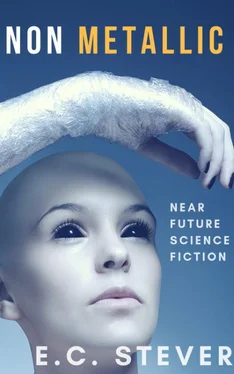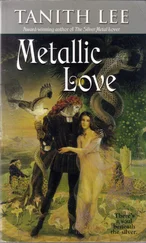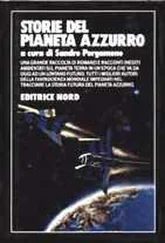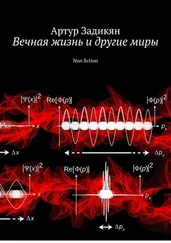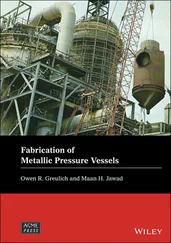He looked into my eyes, the new Jaime, his smile curious and cold. “Come with me, back to Las Vegas,” he said. “There’s no future here for you. After a year, we’ll come back for Mom—”
I shook my head. I could feel something, a vibration rattling inside of my chest. My whole body began to shake, even my arms clasped around Jaime’s neck. I shook him and cried, and then all of a sudden I was running down the alley, on my stupid old-fashioned legs. Legs that would still break if a truck hit them.
I heard the metal egg clatter to the ground, and I hoped it would shatter, cause a short circuit, ruin all their stupid computers and machines. I hoped it would blow up everything, and they’d get what they deserved for spying on us, for laughing with their eyes.
Jaime yelled after me, but I turned the corner and I couldn’t hear him, didn’t want to hear him. When I got back to my house, the tears had dried and I knew Mom wouldn’t be able to tell I had been crying. Marna was waiting for me on the front step. I scooped her up and walked inside the house where it was warm and dry.
I closed my eyes and tried to forget what I had seen. Were they here, even now, I wondered? Watching, sniffing the air I breathed, waving their wands over me to steal my secrets?.
I froze, picturing their faces, their laughing bland faces. A thought returned to me, faster than I could push it away: I had been able to see Jaime. But the truck driver had not.
The brain sees, not the eyes , Jaime had said to me, and he’d laughed, just a little. But I knew that laugh; it was nervous; it was his tell when he cheated at Monopoly.
I ran to the bathroom and thrust my neck close to the mirror. It was there, small but noticeable. A new mole. A small patch of skin that raised up above the rest. Not an adaptation like theirs but something else. A collar to keep us in place.
I knew then that Jaime’s trick—how I saw him—was just a flick of a switch to them. A switch inside of me. This was no Tech-Free reservation. Even here, despite all their promises, they could not resist. There was metal in us all.
I began to scream and cry, but my mother didn’t hear, didn’t come. Maybe they made it so she didn’t come. I huddled down in the bathtub, drawing the curtain closed, hoping the strangers wouldn’t notice, wouldn’t take me away for what I knew.
Forty minutes later the flow of tears dried up. From the bathroom window, I heard another truck as it rolled down the street, grumbling its goodbye to Ruby Hill. I could hear its brakes squealing as it slowed down and then finally, came to a stop.
The shower curtain rustled, just once, and I knew I was not alone.
I closed my eyes and waited for the wonders my future would bring.
END
If you write and publish short stories over a decade, certain themes or archetypal ideas develop and are pretty obvious in retrospect. These ideas reverberate through your stories, but are nearly invisible during the creation process. Only during editing (or usually years later), do you see the connection. The author is often the last to know.
Looking through my science fiction stories from the last decade, I can see some strong themes relating to consciousness, family, and a fumbling attempt to describe what it means to be human. Since I am also an archaeologist, I shouldn’t have been surprised. But I was.
What is happening is clear: There are non-speaking parts of our brains that demand to be heard. This is why we create art. And this is also why we dream (read the final essay for more discussion). Our brains have something to communicate, and transmitting it through consciousness mucks it up. Think about it. Have you ever described a piece of art as “too self-conscious” or “forced”? That’s what I mean. Consciousness mucks it up.
Art is important to us, because it’s one method of external (but non-verbal) communication with other brains. We have other things we do too, but art is interesting because it’s also your brain’s way of crystallizing that communication into a physical form. Art allows you to speak to brains in the future, and to influence brains which you may never meet. How sneaky we creative types are!
And these creative processes are great, because they can tell you what you are thinking about. When you try to write a book with a boring but popular plotline ( Sexy vampires! In Mesopotamia! ), no one buys it. Just like when you try to get a degree in a subject you should like ( Maybe I should become a doctor/lawyer/high-status-job-title! ), you fall flat. That’s because you are being inauthentic. Your brain just isn’t interested. And when you produce tepid results. nobody else is interested either. Humans crave authenticity. We are mobile bullshit detectors.
So what has my brain been up to these last ten years? During this period, I shifted from computer programming to archaeology (yes NASA, I am the ideal programmer-archaeologist you’ve been looking for). Given that, it’s really no surprise I’m interested in technology and consciousness. This collection addresses the themes of near-future humanity, family relationships, and the upcoming singularity (when humans merge their consciousness with non-human objects).
I have several stories about this, so I tried to select evenly between humorous and dystopian. I also didn’t want a blathering collection (here’s thirty stories I wrote; now pay me!) and I didn’t want the unsatisfying piecemeal of publishing individual short stories either. Instead, I’ve gathered up a handful of stories that deal with this specific issue and bundled them into a collection. Other collections of my short stories in the fantasy and humor genres will follow soon.
So what interests me about this sub-genre of science fiction?
It has to do with myths.
We don’t have the necessary myths to deal with the future, so we create science fiction. You can define a myth as a useful pattern of behavior that has a verifiable result in the real world, and that has been useful for a long time. A myth either tells you how to act, or how not to act, and (I think) we evolved these myths over millions of years. If you followed the good behavior outlined in these myths, then you were more likely to survive.
The singularity is coming. As a species, we don’t have any agreed upon patterns of behavior (myths) to deal with these foreseeable future events. Science fiction is our way of fumbling around these issues, of trying out solutions to problems that we can predict will occur. Such an anxious genre! But I think it’s ok to be anxious, because we know the problems are coming, yet we don’t have solutions. Maybe the old ways will work. Maybe not.
Some of the questions we’re struggling with, that are addressed in this collection:
• At what point will technologically enhanced humans be considered a different species? ( Nonmetallic; Judas Horse; Bob-Ten )
• How will we communicate with other intelligences, and confront the changes which aliens bring to our world? ( Bob-Ten; Time Without Roads; Catch_All )
• Does our concept of family make sense in the future? ( Nonmetallic; Judas Horse )
• Is there only one type of intelligence, or are there several? (All Stories)
• Finally: Why are these damned AIs always trying to kill us? ( Catch_All )
Readers have asked me if this is the same character from the previous story (Nonmetallic), later in life. I believe that it is, but in this story, she gets her revenge on the world that has caged her. This must be Young Adult, because the entire story is about tearing down societal structures and starting over. And I loved writing the ending.
Читать дальше
